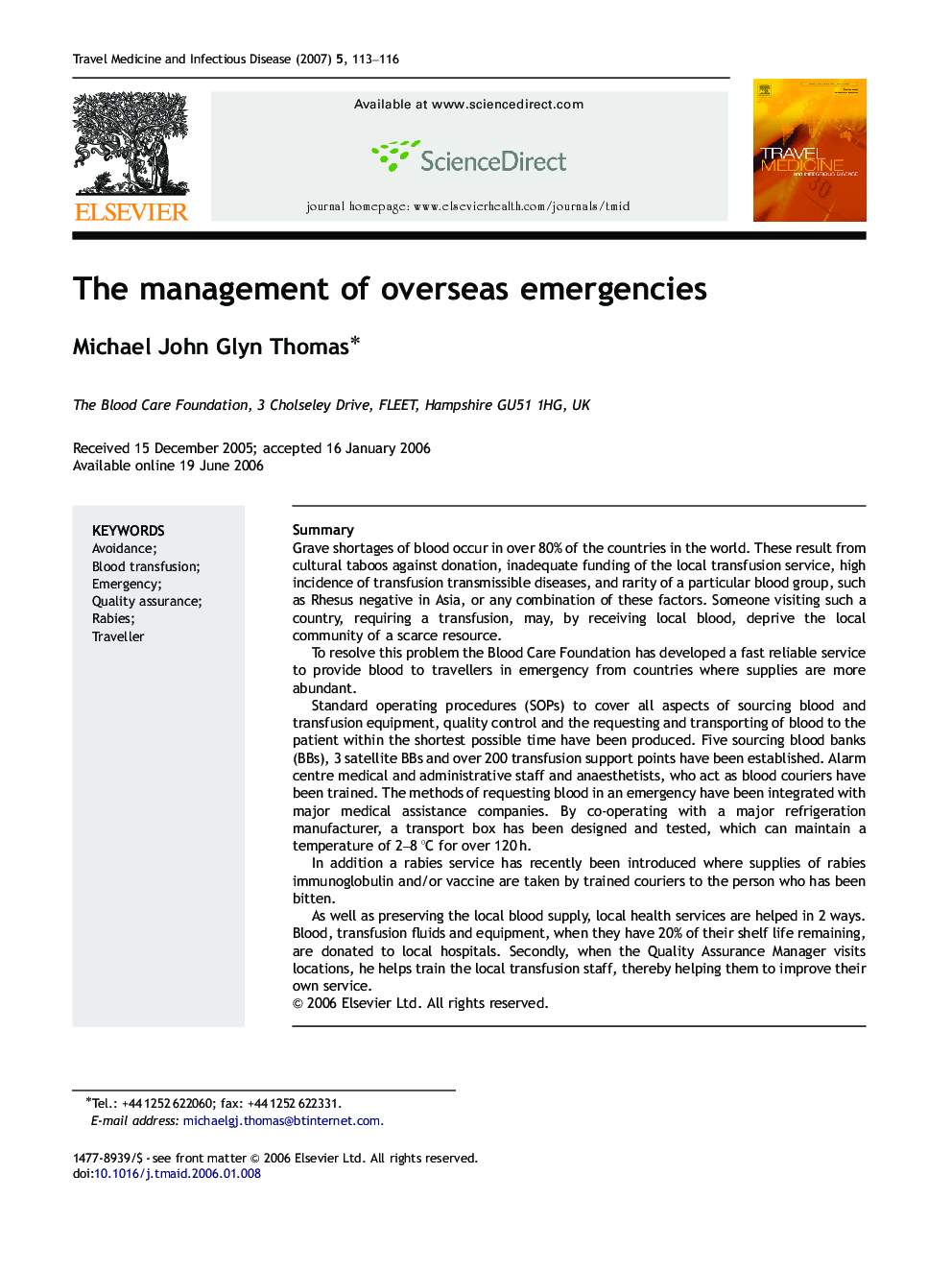| کد مقاله | کد نشریه | سال انتشار | مقاله انگلیسی | نسخه تمام متن |
|---|---|---|---|---|
| 3393470 | 1221343 | 2007 | 4 صفحه PDF | دانلود رایگان |

SummaryGrave shortages of blood occur in over 80% of the countries in the world. These result from cultural taboos against donation, inadequate funding of the local transfusion service, high incidence of transfusion transmissible diseases, and rarity of a particular blood group, such as Rhesus negative in Asia, or any combination of these factors. Someone visiting such a country, requiring a transfusion, may, by receiving local blood, deprive the local community of a scarce resource.To resolve this problem the Blood Care Foundation has developed a fast reliable service to provide blood to travellers in emergency from countries where supplies are more abundant.Standard operating procedures (SOPs) to cover all aspects of sourcing blood and transfusion equipment, quality control and the requesting and transporting of blood to the patient within the shortest possible time have been produced. Five sourcing blood banks (BBs), 3 satellite BBs and over 200 transfusion support points have been established. Alarm centre medical and administrative staff and anaesthetists, who act as blood couriers have been trained. The methods of requesting blood in an emergency have been integrated with major medical assistance companies. By co-operating with a major refrigeration manufacturer, a transport box has been designed and tested, which can maintain a temperature of 2–8 °C for over 120 h.In addition a rabies service has recently been introduced where supplies of rabies immunoglobulin and/or vaccine are taken by trained couriers to the person who has been bitten.As well as preserving the local blood supply, local health services are helped in 2 ways. Blood, transfusion fluids and equipment, when they have 20% of their shelf life remaining, are donated to local hospitals. Secondly, when the Quality Assurance Manager visits locations, he helps train the local transfusion staff, thereby helping them to improve their own service.
Journal: Travel Medicine and Infectious Disease - Volume 5, Issue 2, March 2007, Pages 113–116